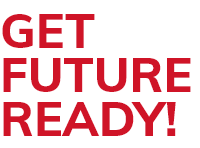Innovative Learning
Engineering the future from
blueprint to breakthrough
Innovations by the Faculty in Teaching and Learning
In the learning paradigm, teaching and learning are viewed as interconnected and inseparable. The presence of a large number of students in each class presents a challenge in transitioning from traditional lecture methods to more engaging and active learning strategies. Teaching, being a core aspect of faculty responsibilities, is aimed at facilitating the learning of a predetermined curriculum. This involves capturing students' attention and presenting ideas in a manner that promotes lasting understanding beyond the classroom.
Traditional teaching methods typically involve delivering content to the entire class through interactive panels, whiteboards, or chalkboards, with the teacher as the information provider and the students as recipients. Innovative approaches in educational institutions enhance the quality of education by diversifying learning experiences, providing faculty and staff with resources for enhancing student learning, and establishing connections between the curriculum and extracurricular activities. These initiatives also empower individuals, improve governance, and contribute to achieving human development goals.
To achieve these objectives, it is essential to redefine the classroom experience and embrace innovative teaching methodologies. Faculty members implementing innovations in teaching and learning focus on key features such as:
- Shifting from "teaching to know" to "teaching to learn"
- Establishing a connect to the ‘context’ in classroom teaching
- Analyzing different roles to enhance the classroom learning environment
- Making teaching both effective and enjoyable
- Sharing and practicing innovative ideas in the classroom
- Promoting active learning strategies
Following innovative learning methods are initiated and implemented by the faculty for students to learn in a better manner
Encouraging the students for learning by doing through Activity-based and Practical-based learning
Our department provides project -based and practical -oriented learning accomplished through student centered pedagogy in which students learn the subject through the experience of solving open ended problems. For practical exposure some subjects are identified and implemented in lab cum class concept. It helps the students in developing flexible knowledge, effective problem-solving skill, self-directed learning, effective collaboration skills and intrinsic motivation. During the semester, some subjects are executed in workshop mode, the students are aligned with the projects for the workshop compilation.
Mentoring system to help at individual levels:
Mentoring is provided for overall development of the students. Mentoring helps students to overcome their difficulties during their studies (course work as well as laboratories). All students are periodically counseled by mentors. Career guidance is also given to the students.
Learning through PPT & Video lectures:
Power point presentations help to make students understand visually the concepts better. Auditory lectures along with videos help the students learn by listening, hearing, speaking and motivate the students to do electronic presentations.
Learning through research papers:
Faculty members are facilitated with online e-journals wherein they are advised to refer to recent research papers and share the same among students. The students are motivated to do research work align with their projects and mini projects.
Learning through MOOCs:
Some advanced topics beyond the curriculum are taught with the help of video lectures of concerned subject/courses available online on the platforms like Coursera, National Programme on Technology Enhanced Learning (NPTEL), and other Massive Open Online Courses (MOOCs) etc.
Learning through other activities:
To have consistent innovations in teaching learning process the department organizes regular meetings and workshops in the department to discuss research works, projects, workshops, organization of FDPs (Faculty Development Program), SDPs/STPs (Student Development/Training Program), industrial visits, conferences, seminars, expert lectures, smart hackathons, and club activities etc. Some students are involved in research work and the same is published in journals with ISSN. Different departmental activities are published in newsletter and NIET times to make the stakeholders aware of the initiatives.

Goals of Innovations by faculty in teaching and learning
The innovation in teaching and learning has clear objectives to achieve targets set based on outcome-based education.
- To bridge the gap between industry and academia by revising the curriculum in accordance to the industry standards. This can be achieved by shifting from theory-heavy classes to practical approach like workshop mode and lab cum classes concepts and motivates students to work on mini projects on the current topics used in industry. Inviting guest speakers from different industries and letting students interact with them can also prove to be extremely beneficial for everyone.
- To make the teaching process more effective and interactive by focusing on creative ways of teaching using audio and video tools. Relating content with real life examples, role plays help students to understand in a better way.
- To develop entrepreneurial skills by encouraging students to initiate a startup business, work on communication skills, leadership qualities, and keep on learning.
- To motivate the students for higher education.
- Extra initiatives are taken to increase the employability skills of the students by aligning them for certifications.
- The faculty members are also motivated for upskilling and reskilling as per the industry requirements.
- E content is developed by the faculties in the institute.




























